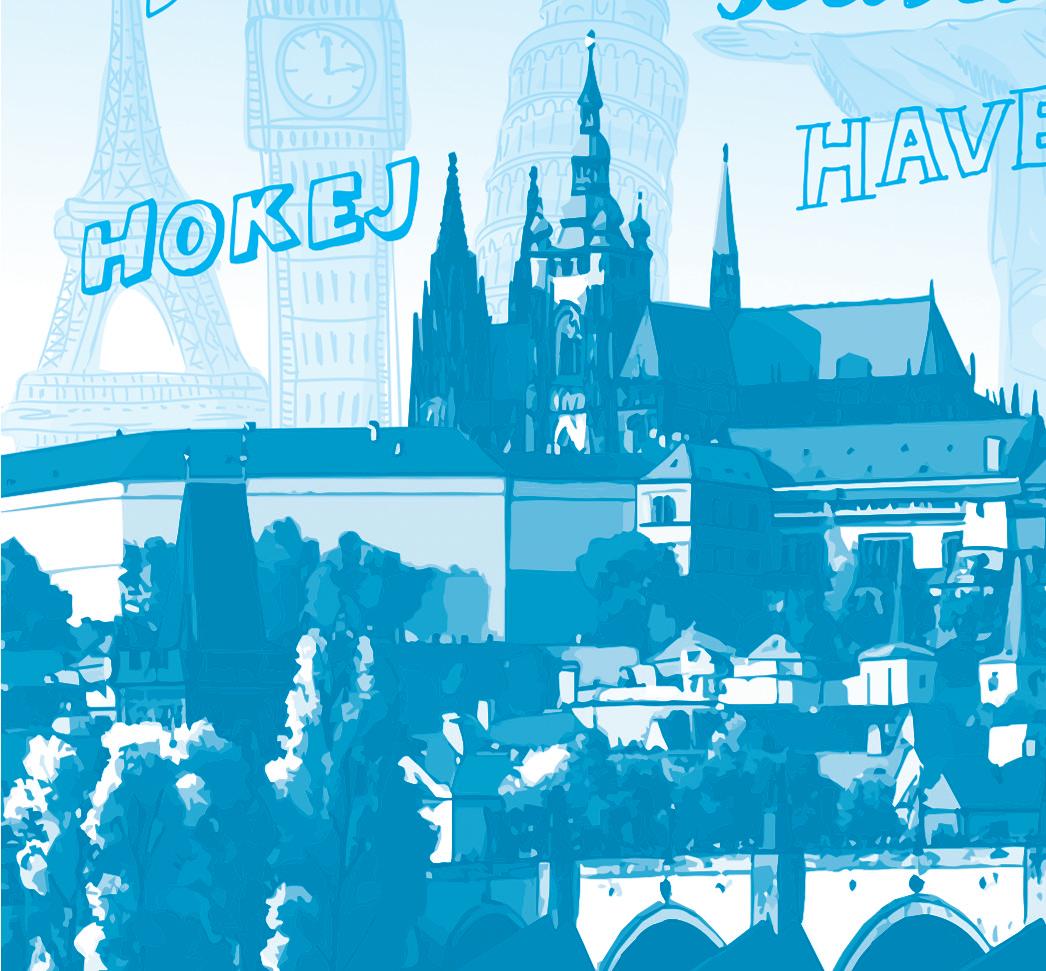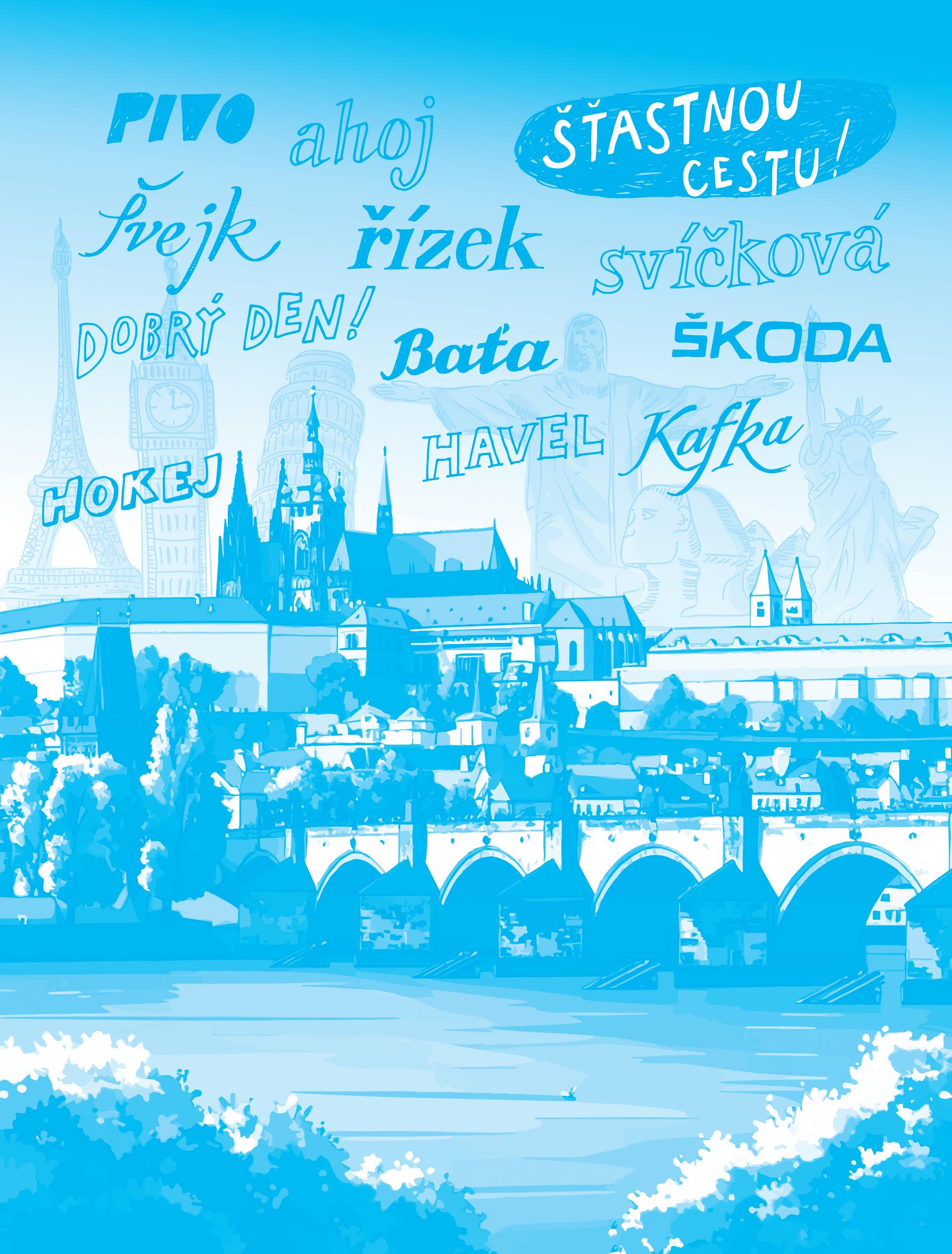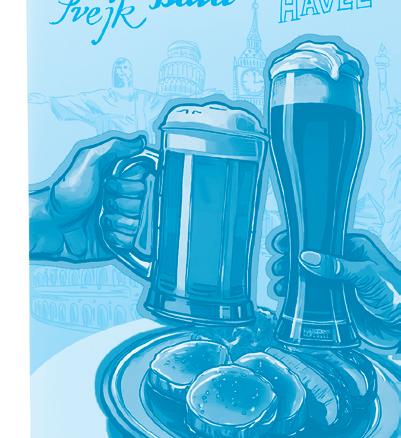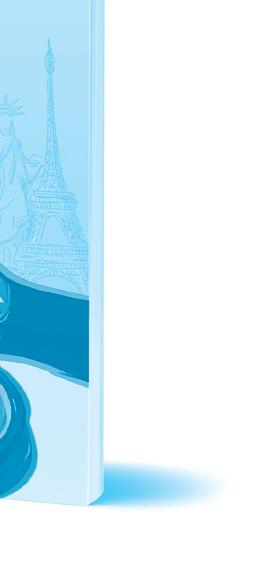










Miroslav
ISBN 978-80-909335-3-8 can come in handy for vocabulary and more
© Miroslav Pošta, 2025




scan the QR code to buy
Do you like to study languages with a pencil in your hand? Then this book is made for you! It offers a hundred quizzes, puzzles, short dialogues, word games and creative exercises — things that you can fill in, cut out, stick on something, and above all, make your own.
The book has three parts. The first part is intended for beginners, and you need little prior knowledge to do most of the exercises. The second part focuses on Czech culture and everyday life, with vocabulary about traditions, places, and popular activities. And the third part is designed for lower intermediate students at the A1/A2 level.
It was our goal to make a practice book that is both fun and useful. That means that the focus is on things such as food and drinks, travel, and other basic vocabulary. Occasionally, we have included things that you may have to google, but will definitely give your language learning a boost. Finally, we have added a dash of language learning tips.
How should you work with the book? It’s entirely up to you. For example, you can go for a 100-day challenge, doing an exercise a day. Or, you may complete all the exercises in a matter of days. Personally, I have two recommendations: read the words and sentences aloud whenever you can, and write down new words that you come across in the exercises. You might find it helpful to keep a dedicated notebook for this purpose. And remember: if you get stuck, don’t hesitate to use a dictionary, the Internet, or a native speaker. Anything goes.
Mirek
Now, grab your pencil and... Jdeme na to!
Before we get started, here’s a quick questionnaire (dotazník in Czech) for you to fill in.

Places in Czechia I’ve been to:
Places I’d like to visit:
Czech dishes I like / I’d like to taste:
My favourite song in Czech:
My favourite Czech singer or band:
My favourite Czech film or TV series:
The first Czech word I learned:
The Czech word I learned last:
A word I have trouble remembering:
Put the following greetings in the correct column. Note that some of them are universal, belonging in both columns.

Dobrý den.
Ahoj.
Na shledanou. Čau.
Měj se.
Dobrý večer.
Dobré ráno.
Dobrou noc.
Na viděnou.
Nazdar.
When meeting someone
When saying good-bye
Both

For each sentence, figure out which answer is correct.
1. Jak se jmenuješ?
a. Děkuju, dobře.
b. Jmenuju se Petr.
c. Ne, nechci.
2. Jak se máš?
a. Dobře.
b. Eva.
c. Z Prahy.
3. Odkud jsi?
a. Jsem z Německa.
b. Jsem v Německu.
c. Ano.
4. Mluvíš česky?
a. David.
b. Dvě eura.
c. Ano.
5. Kde bydlíš?
a. Anglicky.
b. Z Prahy.
c. V Praze.
6. Studuješ, nebo pracuješ?
a. Pracuju na poště.
b. Jsem z Brna.
c. Bydlím v Brně.
7. Co děláš za práci?
a. Jmenuju se Petra.
b. Jsem zdravotní sestra.
c. V Plzni.
8. Máš děti?
a. Ano, mám syna a dceru.
b. Ano, pracuju v obchodě mého otce.
c. Ano, mám bratra a sestru.
9. Máš sourozence?
a. Ano, mám dvě děti.
b. Ano, mám dceru.
c. Ano, mám sestru.
10. Kolik je ti let?
a. Dvě eura.
b. Je dvanáct.
c. Je mi dvacet šest.

These are some of the nominees in a poll to find the most beautiful Czech word. Note that many of them are diminutives (see p. 90).
babička (grandmother)
beruška (ladybird)
borůvka (blueberry)
brouček (‘little bug’, meaning ‘sweetheart’)
čtyřlístek (four-leaf clover)
čumáček (‘little snout’, referring to a child’s or animal’s nose)
hlemýžď (snail)
holčička (little girl)
What are your favourite words?
jabloň (apple tree)
konvalinka (lily of the valley)
láska (love)
pampeliška (dandelion)
studánka (small spring/well)
veverka (squirrel)
zmrzlina (ice cream)
žížala (earthworm)
Put the country names in the map.
Note that Slovakia and Slovenia can be easily confused.

1. Belgie (f)*
2. Česko (n)
3. Lichtenštejnsko (n)
4. Lucembursko (n)
5. Maďarsko (n)
6. Německo (n)
7. Nizozemsko (n)
8. Polsko (n)
9. Rakousko (n)
10. Slovensko (n)
11. Slovinsko (n)
12. Švýcarsko (n)
* f = feminine (she), m = masculine (he), n neuter (it); always a plural = pl.
